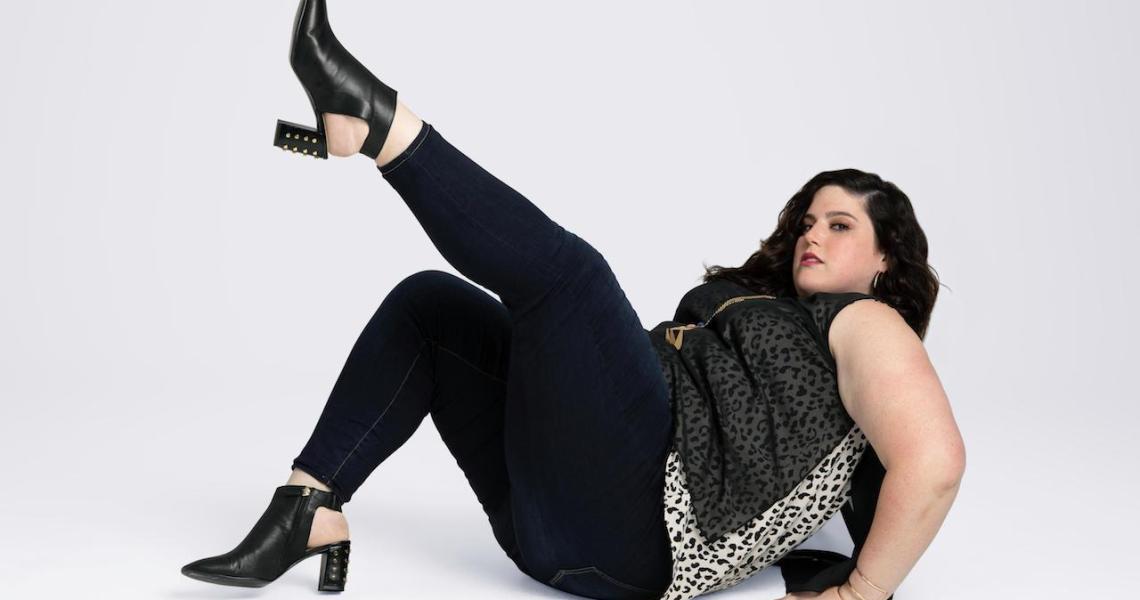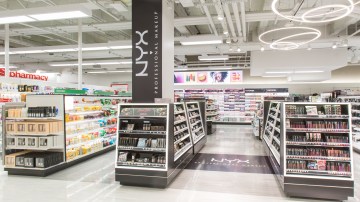Dia&Co made a name for itself in the plus-size fashion market through its five-product subscription box, similar to services provided by FabFitFun, Stitch Fix and others. But starting Friday, the company is introducing both a direct e-commerce model and a hybrid that splits the difference between control and curation.
The “co-curation” model lets customers pick up to three of the five items included in the box from the company’s site. From there, a stylist will take a look at what was already chosen along with the customer’s stated style wants via a customer survey, to finish out the mailer.
A hybrid model was added for increased flexibility for customers, said Dia&Co CEO Nadia Boujarwah. She sees multiple uses cases for shoppers including a customer who knows exactly which dress she wants to wear to an event but has no idea how to accessorize it, or has a specific preference for pants, but is willing to experiment with a top.
“In plus-size fashion particularly, fit is so critical,” Boujarwah said. “When customers tell us what they want and our stylists help them complete the look they’re going for, that’s really powerful stuff. So often, plus-size fashion customers are sidelined in retail innovation.”
Subscription boxes are a hot commodity in fashion and beauty. The subscription box market is about $10 billion right now and growing by more than 100% every year for the last five years. Curation boxes like Stitch Fix, Ipsy and Birchbox are becoming more of the norm versus replenishment options like those provided by Amazon. However, customers are increasingly demanding two things: more ways to express themselves and stand out and guidance on how to achieve certain looks and styles, as evidenced by companies like M.M.LaFleur, which rely on styling services to support product.
As subscription boxes evolve, a split of curated and controlled boxes may be the next wave of the model. FabFitFun, which provides options for a surprise box and a curated box with the contents made known to customers in advance, recently began selling its boxes with QVC. On the retail front, Birchbox partnered with Walgreens to let customers shop their products in stores directly; Walgreens did not sell Birchbox boxes in-store but prompted customers to sign up on beauty company’s e-commerce site.
Churn rates for subscription services are high, according to McKinsey, and when customers don’t get exactly what they want, they frequently cancel them. Adding a way for customers to have more direct control over what comes in each box is a way to ensure that the experience remains personalized.
“Curated selections from fashion advisers based on personalized profiles has been a hot trend,” said David Naumann, vp of retail marketing at supply chain consultant enVista. “Consumers like to feel that they are getting customized selections designed specifically for their preferences. These services have led to the massive growth in subscription services for everything from ties and socks to athletic apparel and luxury fashion.”
Knowing the trend, Boujarwah took Dia&Co’s change in strategy to its customers first.
“Our biggest channel for collecting feedback, volume-wise, is through our styling service,” Boujarwah said. “We get so much data from the surveys they fill out and the feedback to each item and each transaction.”
Dia&Co has grown significantly since it was founded in 2015. Last year, the company pulled in $40 million in a fundraising round which, bringing its total capital up to $95 million. A big chunk of that money has gone toward cultivating an online community of followers and customers (185,000 on Instagram and more than 850,000 on Facebook) where Dia&Co’s community managers interact with customer. The company would not share current sales figures.
“The co-curation is going to be marketed heavily,” Boujarwah said. “We think it’s a compelling new experience. We’ll be pushing it to all our long-term customers, who I think will be early adopters. The whole idea is to let our customer decide how she she wants to shop and follow her lead.”




